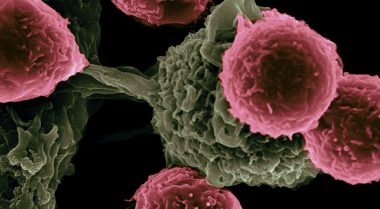Sufen Zhu
PhD Student (Big Data for Complex Disease programme) at University of Oxford

I have a broad background in primary care health science. I completed my Mphil in Primary Care Research at the University of Cambridge, where I mainly explored the impacts of screening programmes in primary care. After that I joined the University of Oxford as a research assistant, focusing on the effects of behavioural interventions on disease management and causal relationships among diseases. My current interests lie in using primary care data, especially data of repeated measurements to help with early cancer detection.
Project Information
Research Driver Programme: Big Data for Complex Diseases
Title: BLOod Test Trend for cancEr Detection (BLOTTED): an observational and prediction model development study using English primary care electronic health records data
Summary:
Cancer is a major cause of death in the UK. Detecting cancer early can save many lives. Growing tumours can sometimes lead to subtle changes in blood test results, which might help in detecting cancer earlier. But the current practice, which uses a single blood test by itself to identify cancer in primary care isn’t very effective. This is because blood tests are typically analysed on their own, with a simple ‘normal’ or ‘abnormal’ cut-off. We’re now considering whether looking at how blood test results change over time might give us a more accurate way to predict cancer. For instance, if a patient’s haemoglobin level is in the low-normal range, it might not raise concerns when considered in isolation with the current ‘normal’ cut-off. However, if that level has been consistently high-normal for years and suddenly drops to low-normal, it could be a sign that further investigation for cancer is needed. In this project, we will compare the changes in blood test results between patients with cancer and those without it. We will then develop a computer-based tool to help doctors to identify the subtle differences between the changes to detect cancer in an earlier stage.
What is your motivation for undertaking this project and how will this funding impact your research?
As a primary care researcher, I have explored various areas within primary care research and realized my true passion lies in utilizing big data for early cancer detection. My interest in early detection was sparked during my research on the impact of atrial fibrillation screening at Cambridge. After that I actively engaged in training on screening and risk stratification as an exchange student at Erasmus MC and developed a strong interest in stomach and colorectal cancer screening. While I later pursued behavioural research to broaden my expertise and skills, I have always recognized the significance of risk stratification strategies for cancer detection.
Therefore, I am highly motivated to return to early detection research, which strongly aligns with the objectives of this PhD program in stratifying cancer risk for early detection. I also found myself particularly drawn to the use of primary care data. I have experience in using data from CPRD and QResearch, I think research using big databases from primary care is very cost-effective, efficient and could hugely fuel innovation for smarter use of routine data to improve patients’ health. Thus, I am eager to join this program and utilize electronic health record data to address research questions. I am also enthusiastic about applying advanced statistical methods to data analysis and the utilization of cutting-edge analytical approaches, such as machine learning and dynamic models, within this program excites me greatly. This funding has made me realize the potential of big healthcare data to improve health. I am passionate about using this data more creatively and wisely, such as analysing individuals’ trends in repeated measurements, to enhance risk prediction and contribute to cancer detection.


